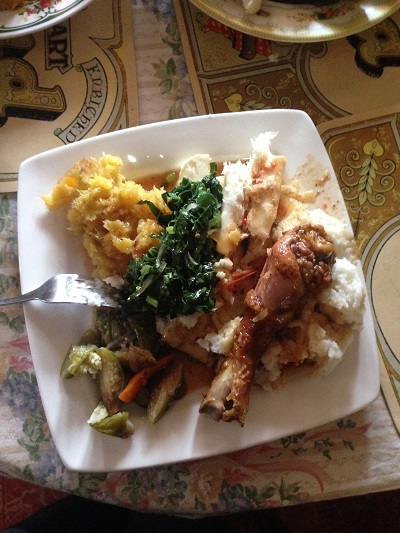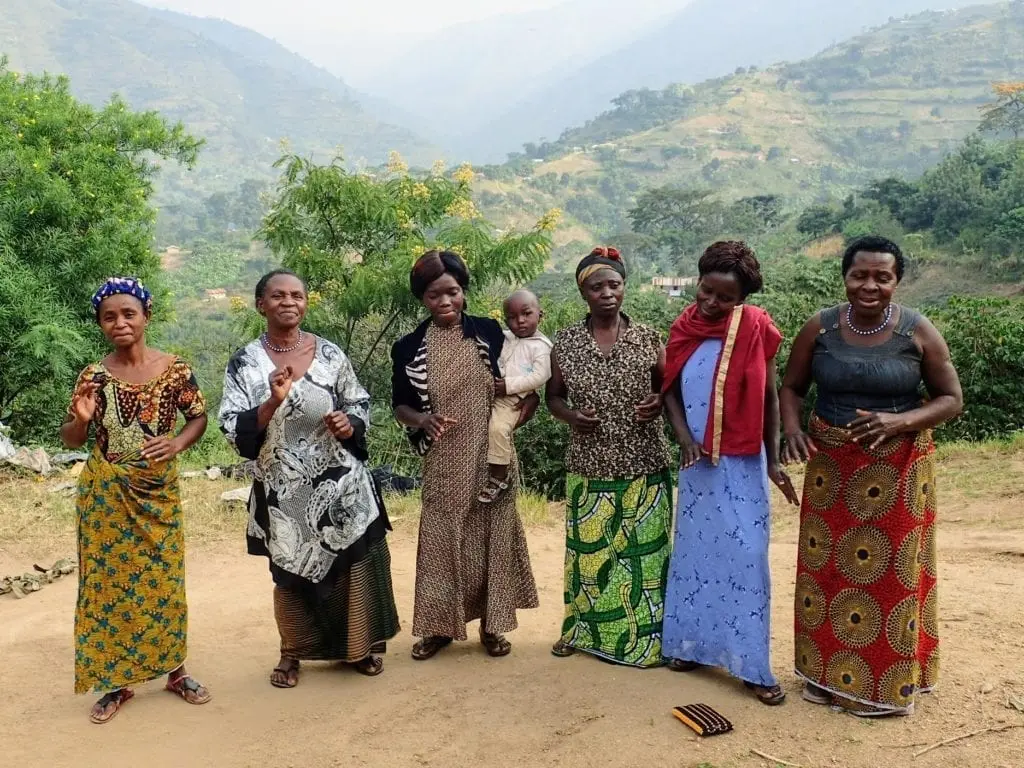Culture Shock: What American Tourists Need to Know Before Visiting Uganda

Introduction
When embarking on a journey to Uganda, you open the door to a vibrant tapestry of culture, history, and breathtaking landscapes. This East African gem is not only known for its stunning wildlife and natural beauty but also for its rich cultural heritage. Understanding this culture will greatly enhance your experience, allowing you to connect deeply with the local people and traditions.
Why Cultural Awareness Matters
As you navigate through Uganda, you’ll quickly realize that cultural awareness can make all the difference. Picture this: you find yourself at a local market, surrounded by colourful fabrics, fresh produce, and the hum of lively conversations. By understanding traditional beliefs and practices, you'll know just how to engage with the vendors and appreciate their crafts. Here’s what you can expect:
- Rich Traditions: From music and dance to art and storytelling, Uganda’s traditions are both diverse and captivating.
- Warm Hospitality: Ugandans are known for their friendliness, and understanding the local customs can help you forge genuine connections.
- Unique Experiences: Participate in local ceremonies or festivals, which can create unforgettable memories.
So, prepare to immerse yourself fully, as this guide will help you navigate the intricacies of Ugandan culture, enabling you to appreciate every moment of your adventure.
Understanding Ugandan Culture
Traditional Beliefs and Practices
Ugandan culture is a vibrant tapestry woven from its rich history and diverse ethnicities. When visiting Uganda, you'll encounter traditional beliefs and practices that deeply influence daily life. For instance, many Ugandans adhere to spiritual traditions that involve ancestor worship and respect for the community. It’s not uncommon to witness rituals surrounding birth, marriage, and death, which highlight the importance of familial ties.
From my own experience, attending a Ugandan wedding was a revelation! The celebration was not just about the couple but also a gathering of families and communities, where traditional songs and dances brought everyone together in joy.
Cultural Do's and Don'ts
When navigating Ugandan culture, being aware of certain do's and don'ts can enhance your experience:
Do’s:
- Greet People: A simple “Oli otya?” (How are you?) can go a long way.
- Dress Modestly: Respect local customs by opting for conservative attire, especially in rural areas.
- Participate in Traditions: Embrace local customs and rituals; it shows respect and fosters goodwill.
Don'ts:
- Avoid Public Displays of Affection: This could make others uncomfortable, as it’s not customary.
- Don’t Critique Local Practices: Approach differences with an open mind and heart.
Engaging respectfully with traditions and practices will only deepen your understanding of Uganda and enrich your interactions with its warm and welcoming people.

Language and Communication
Common Phrases and Greetings
When you step into Uganda, one of the first things you'll notice is the warmth of its people, often conveyed through their language. English is widely spoken, but local languages like Luganda, Runyankore, and Lusoga add richness to the interaction. Learning a few common phrases can go a long way in building connections. Here are some essential greetings that can help you break the ice:
- "Oli otya?" (How are you?)
- "Ndi bize" (I’m fine.)
- "Webale" (Thank you.)
- "Ddala" (Exactly or truly.)
In my experience, greeting someone in their local language often elicits animated smiles and sometimes even prompts a friendly conversation. It’s remarkable how just a few words can open the doorway to deeper cultural understanding.
Nonverbal Communication
Beyond spoken language, nonverbal communication plays a vital role in Uganda. Body language and gestures carry significant meaning; hence, being aware of them can enhance your interactions. Some key points to consider:
- Handshake: A firm handshake, often accompanied by a smile or a greeting, is common.
- Nods and Smiles: Nodding indicates agreement or understanding, while smiling is a universal sign of friendliness.
- Respectful Distance: Maintaining a comfortable distance while conversing is appreciated, and personal space is respected.
Remember, your body language can speak volumes! My own awkward moment came when I unknowingly stood too close during a conversation, leading to a brief look of surprise from my Ugandan friend. Since then, I have paid close attention to both spoken and unspoken cues! Each cultural exchange enriches your journey in Uganda, and embracing both language and nonverbal communication will surely make your experience more enjoyable.

Uganda's Cuisine
Traditional Ugandan Dishes
Ugandan cuisine is a vibrant tapestry woven from a variety of ingredients and influences. As you dive into traditional Ugandan dishes, you’ll notice staples that reflect the country’s rich agricultural heritage. Some must-try dishes include:
- Matoke: Steamed green bananas that are a staple in any Ugandan household. Served with a rich sauce or simply cooked, it’s a satisfying dish you won’t want to miss.
- Posho: A maize porridge that serves as a perfect accompaniment to many traditional meals.
- Luwombo: A hearty stew made with meat (or chicken), vegetables, and groundnut sauce, often served at special gatherings and celebrations.
Don’t forget to try local snacks, like kabalagala (fried plantain fritters) and samosas, which are perfect accompaniments to the rich flavours of Ugandan food.
Table Manners
When it comes to dining etiquette in Uganda, there are a few customs to keep in mind. Eating is often communal, and sharing food is seen as a sign of friendship and hospitality. Here are some key points to remember:
- Wash Hands: Before you sit down to eat, it's customary to wash your hands, often done with a communal jug of water.
- Use Your Right Hand: You’ll generally use only your right hand for eating, as the left is considered unclean.
- Enjoying Meals Together: Waiting for the eldest or the host to start eating is a sign of respect. Don’t be surprised if you’re encouraged to eat your fill; it’s considered polite to ask for more.
Your experience with Ugandan cuisine will not only fill your stomach but also your heart, as it shares the warmth of its people and traditions.

Dress Code and Attire
Traditional Clothing
When you think of Ugandan culture, vibrant colours and intricate patterns likely come to mind! Traditional clothing in Uganda varies across different tribes, but one thing remains constant—the pride and craftsmanship involved. The most notable traditional attire includes the "Gomesi" for women, a long, colourful dress adorned with a sash. Meanwhile, men often don the "Kanzu," a white robe that is both elegant and comfortable, often paired with a jacket called a "Kanzu jacket."
Gomesi Features:
- Bright colours (often red, yellow, and green).
- Decorative sashes that add a festive touch.
Kanzu Characteristics:
- Simple yet sophisticated design.
- Versatile for both formal occasions and celebrations.
Personally, I remember attending a wedding where the bride was stunning in her Gomesi, representing her heritage beautifully.
Dressing Appropriately
In Uganda, dressing appropriately goes beyond traditional clothing; it also reflects respect and understanding of social norms. While casual outfits are suitable for everyday wear, it’s important to consider the setting.
Key Tips for Dressing:
- For formal occasions, Opt for a Gomesi or Kanzu to blend in seamlessly.
- In rural areas: Be modest; choose longer dresses or trousers.
- Beach outings: Light, breathable fabrics are essential, but don’t forget about modesty!
Always remember that showing respect through your attire can greatly enhance your experience. Whether you're engaging with locals or exploring Ugandan cities, being aware of dress norms can open doors and create lasting impressions.

Social Norms and Customs
Gender Roles
In Uganda, traditional gender roles are quite pronounced, though changes are gradually taking place. Typically, men are viewed as the primary breadwinners, while women often manage the household and care for children. However, you’ll find women breaking barriers in various sectors, including politics and business.
Men are generally expected to:
- Provide financially.
- Make important family decisions.
Women usually focus on:
- Home management.
- Raising children.
While these roles are evolving, showing respect for both men and women in conversations and interactions is essential. Acknowledging their individual contributions can go a long way.
Expressing Gratitude
In Uganda, expressing gratitude is a vital part of social interaction. People take time to appreciate acts of kindness, whether big or small.
- You can express gratitude verbally by saying “Thank you” in Luganda, which is “Webale”.
- A smile and handshake are also customary after receiving a favour.
Children are often taught to say “thank you” from a young age, reflecting the significance of appreciation in the culture. By understanding these gender roles and how gratitude is expressed, you can build deeper, more respectful connections with the Ugandans you meet on your journey.

Transportation and Getting Around
Public Transportation
Navigating Uganda’s vibrant landscape can be quite an adventure, especially when you opt for public transportation. The country offers several modes that are both affordable and widely used by locals. One of the most popular options is the "matatu," which is a shared minibus. These colourful vehicles pack quite a crowd and often serve as the lifeblood of urban commuting. You can expect to hop on one, wave your hand, and shout your destination to the conductor. Aside from matatus, you can also find:
- Boda-bodas: Motorcycle taxis that zoom through traffic. While they are fast, it’s best to wear a helmet and negotiate the fare beforehand.
- Taxis: Regular taxis are available, typically with fixed fares. Make sure to agree on the price before you start your ride.
A fun tip: If you're ever waiting for a matatu, engage with locals, and you might just pick up a few Luganda phrases and make new friends!
Driving Etiquette
If you decide to drive in Uganda, you'll find that it comes with its own quirks. The roads can be busy, and driving is on the left side, so stay alert. Here are some primary rules to keep in mind:
- Be Mindful of Pedestrians: People frequently cross roads without hesitation. Always be prepared to stop.
- Use Your Horn: This may seem a bit odd, but honking is often a way to communicate with other drivers, whether you're passing or alerting them of your presence.
- Respect Local Customs: It’s common to see cars give way to bodas, so maintaining a cautious approach is key.
Just remember, driving in Uganda can be an exhilarating experience, but keeping a calm mind will help you navigate the bustling streets more effectively.
Health and Safety Tips
When you're exploring the rich landscapes and vibrant cultures of Uganda, it's essential to prioritize your health and safety. Let’s dive into some crucial aspects that will help you have a smooth and enjoyable experience.
Vaccinations and Health Precautions
Before embarking on your adventure, it's wise to check with your healthcare provider about necessary vaccinations. Common recommendations include:
- Yellow Fever: A must if you're travelling from a country with a risk of yellow fever transmission.
- Hepatitis A and B: Protects against foodborne and bloodborne viruses.
- Typhoid: Crucial if you plan to eat street food or visit rural areas.
Additionally, carrying a health kit with essentials such as insect repellent (mosquito-borne diseases are prevalent), hand sanitiser, and basic medications for traveller's diarrhoea can be beneficial. I remember my trip to Uganda, where I used a mosquito net each night; it gave me peace of mind and kept nights worry-free.
Crime Rate and Safety Measures
While Uganda is generally safe for tourists, it's always good to stay alert. Here are some practical safety measures:
- Avoid displaying valuable items, such as expensive jewellery or electronics.
- Stick to well-lit areas and avoid wandering alone at night.
- Use registered taxis or car services rather than hitchhiking or using unofficial taxis.
Trust your instincts. If something doesn't feel right, don’t hesitate to move on. Personal safety should always come first. Overall, by following these simple guidelines, you can focus on soaking up the breathtaking beauty and warmth of Ugandan culture without a hitch!

Shopping and Bargaining
Popular Souvenirs
When you're exploring Uganda, you can't miss the opportunity to bring back some unique souvenirs. Here are a few must-have items:
- Handmade Crafts: Look for beautifully woven baskets, mats, and intricate beadwork that showcase local artistry.
- Ugandan Coffee: As a coffee lover, I can’t recommend Ugandan coffee enough! Bringing back some beans can take a little piece of Uganda home with you.
- Traditional Clothing: Consider purchasing a "kitenge" or "kanga," which is a colourful fabric worn in various styles.
- Local Artwork: Paintings that reflect Ugandan landscapes or culture can add a nice touch to your home.
Each of these items tells a story and reflects the vibrant culture of Uganda.
Bargaining Tips
Now, let’s talk about one of the most exciting aspects of shopping in local markets: bargaining! Here are some tips to help you navigate this practice:
- Do Your Research: Knowing the average price of items beforehand can help you negotiate effectively.
- Start Low: Begin with a price that’s lower than what you’re willing to pay; this gives you room to negotiate upwards.
- Be Friendly: Keep a smile on your face! Building rapport with the vendor can lead to better prices.
- Walk Away: If the price isn’t right for you, don’t hesitate to walk away. Vendors often call you back with a better offer.
Bargaining is not just about getting a price you like; it’s an essential part of the shopping experience in Uganda. Enjoy every moment of it!

Religious Practices and Etiquette
As you navigate through Uganda, you'll quickly notice that religion plays a vital role in the everyday lives of its people. The rich tapestry of beliefs adds depth to cultural practices and community interactions.
Dominant Religions
Uganda is home to a diverse array of religions, but a few stand out as particularly influential:
- Christianity: This is the predominant religion, with approximately 84% of the population identifying as Christians. Catholicism and Protestantism are the largest denominations. Many churches have significant community programs, which are a wonderful way to experience the local culture.
- Islam: About 13% of Ugandans are Muslim, primarily following the Sunni tradition. Mosques can be found in various cities, and they often serve as community centres beyond worship.
- Traditional African Religions: A percentage of the population also practices traditional beliefs. These often incorporate ancestral worship and the reverence of nature.
You might find attending a local service, whether Christian or Muslim, offers deep insights into community life.
Respecting Religious Sites
When visiting religious sites, it's crucial to show respect and follow local customs. Here are some tips to consider:
- Dress Modestly: Ensure your attire is respectful—covering shoulders and knees is often advisable.
- Remove Shoes: Before entering homes, mosques, or some churches, you may be asked to remove your shoes. This is a sign of respect.
- Be Quiet and Subdued: Maintain a calm demeanor, particularly during services or moments of prayer.
By paying attention to these practices, you not only enhance your travel experience but also foster goodwill and understanding with the local community. Engaging with their spirituality can open doors to fascinating stories and connections.
